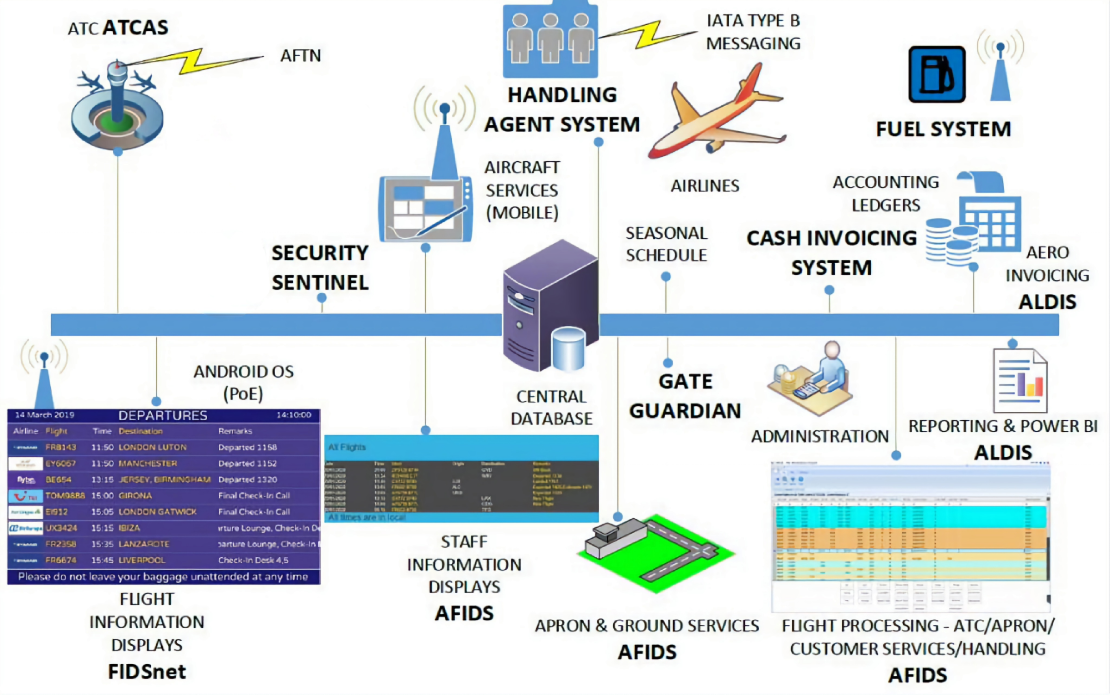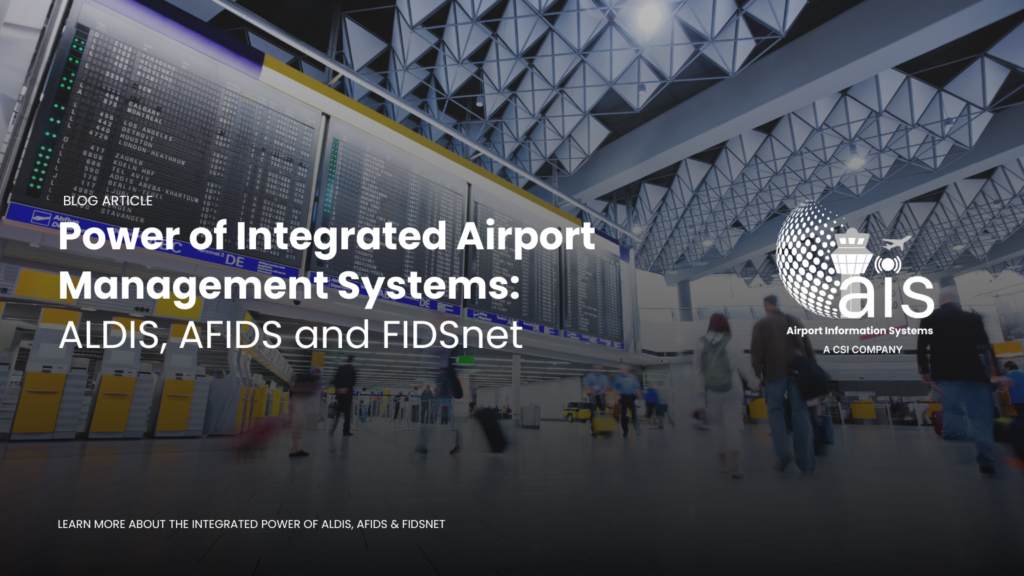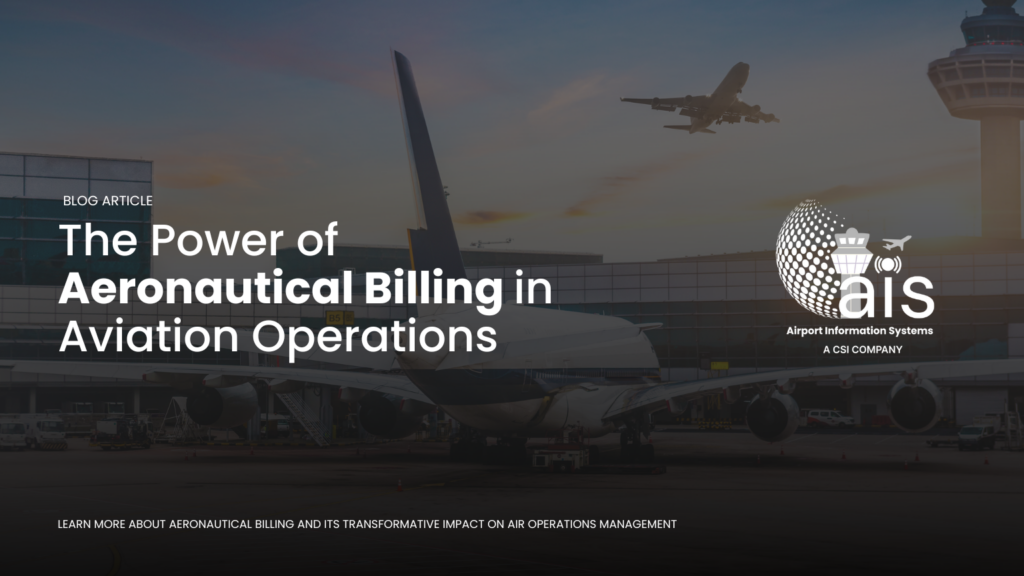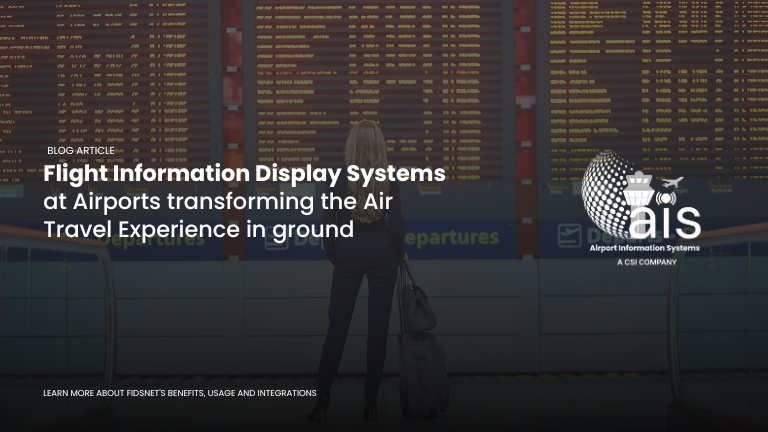Imagine an airport as a complex web of activities, where flights arrive and depart, passengers flow through terminals, baggage moves behind the scenes, and a multitude of vital data exchanges occur. It’s a dynamic environment where every second counts. But here’s the challenge: many airports rely on systems from different providers to manage various aspects of their operations. While each system excels in its area, they often operate in isolation, leading to inefficiencies and complexities. In this high-stakes environment, the margin for error is virtually non-existent. This is the space where Integrated Airport Management Systems come into play, integrating and sharing data across multiple close-knit systems.
Airport Flight Information Display System (AFIDS) and Flight Information Display Systems (FIDSNet) ensure that consistent and synchronized information is displayed throughout the airport. The integrated Aeronautical Billing System of Airport Landing Dues Information System (ALDIS) ensures accurate and transparent billing for airlines and other aviation stakeholders. This integration fosters operational excellence, improved revenue management, and a seamless passenger experience, positioning the airport as a model of efficiency and innovation within the aviation industry.
What is Airport Landing Dues Information System (ALDIS)?
Airport Landing Dues Information System (ALDIS) consists of Aeronautical Billing, Ledger Accounting, and Reports and Audits. ALDIS is responsible for handling credit invoicing, while Airport Flight Information manages cash invoicing and resource allocation for check-in desks, gates, and carousels.
Aeronautical Billing
Aeronautical Billing systems automate key invoice management processes in Airports, thus saving airports a significant amount of time and resources. It is crucial for airports as it ensures proper revenue generation, efficient financial management, cost recovery, data-driven decision-making, and effective airline relationship management.
Ledger Accounting
Ledger Accounting is the bedrock of financial record-keeping, a structured system that organizes and tracks financial transactions within an organization. ALDIS interfaces with any external accounting system for easy integration of data for purchase ledger and sales ledger. Some common interfaces that AIS’ ALDIS integrates with are SAP, SUN Accounting, Sage Line 50, Sage Line 200, Exchequer, Access Accounting, and Pegasus. Next to ledger management comes reports and audits.
Reports & Audits
ALDIS offers a comprehensive suite of reports and audits including Data Extract Tool, a utility that is designed for end-users to generate ad-hoc reports for statistical analysis and create custom reports. Data Extract tool can accurately analyze and report Runway utilisation, Movement enquiry, Financial comparisons against contract agreements, and Load Factor enquiry by route/operator/airline and more.
What is Airport Flight Information Display System (AFDIS)?
In the bustling realm of airports, precision and efficiency are non-negotiable. Airport Flight Information Display System (AFIDS) is a data collection and real-time processing software, that integrates with ALDIS to collect data and produce accurate invoices, which are then processed in the Cash Invoicing System. This information is then passed to the Flight Information Display System (FIDSNet) for relevant information to be displayed around the airport. AFIDS by Airport Information System stands as a multifaceted solution that unites various components catering to diverse user groups within the airport ecosystem.
Handling Agent Airline System
This is a viewport for Airport Handling Agents and Agencies, which displays the necessary information in IATA format with default local time or UTC. Handling Agent Airline System provides a centralized platform for managing and overseeing a range of operations, facilitating smoother coordination between airlines and the airport.
Security Sentinel and Gate Guardian
Similar to Handling Agent, this is a viewport for Airport Security officials to thoroughly check the e-boarding passes at both check-in and gates. Security Sentinal and Gate Guardian ensure proper point of origin verification, door/gate open/close status, and cancelled flight checks.
Apron Management
Efficient apron management is essential to regulate the movement of aircraft and vehicles on the apron. Recently, Hong Kong International Airport has won Top Global Award for pioneering its Digital Apron and Tower Management System throughout the airport. Apron and Tower Management are indispensable to airport operations, encompassing safety, efficiency, resource allocation, and communication. It ensures that apron activities in the airport align with safety guidelines and operational efficiency, contributing to a well-orchestrated airport environment.
Air Traffic Control Administration System
Along with safety, compliance is critical to manage and operate airports unanimously. The Air Traffic Control (ATC) Administration System helps create mandatory statistics and regulatory measures compliant with governmental agencies such as NATS (National Air Traffic Services).
Cash Invoicing
The Cash Invoicing module plays a pivotal role in producing precise invoices for cash-based payment operators. A cash invoicing system is critical to ensure the accuracy of all accounts and calculate appropriate taxes and levies, helping airports streamline their financial operations.
Fuel System
The Fuel System module, as the name suggests is a dedicated portal to monitor and manage fuel receipts from various terminals at the airport. The AFIDS fuel system manages Jet A1, AVGAS, and various oils, including the calculation of VAT for Jet A1 at two different levels.
What is Flight Information Display System (FIDSNet)?
Flight Information Display Systems (FIDS) have long been an essential part of the airport experience, providing passengers with up-to-date information on flight schedules, gate changes, and delays. FIDSNet is a sophisticated network of interconnected displays across the airports and terminals that provide real-time information to passengers, airport personnel, and relevant stakeholders.
This quintessential network has revolutionized how airports manage operations, provide real-time updates, and enhance passenger journeys. FIDSNet has evolved to be more than just displaying flight information. Beyond its primary purpose, FIDS has played a major role in Airport passenger experiences by efficiently managing gates, providing wayfinding assistance, tracking baggage, delivering travel updates and alerts, offering advertising opportunities, and enabling emergency management.
Benefits of Integrated Airport Management Systems
Now that we have a grasp on the various products and modules for each vertical, let’s explore the significant advantages of incorporating an integrated Airport Management System. The major benefit of having an integrated Airport Management System consisting of ALDIS, AFIDS and FIDSNet is the seamless flow of information and data synchronization across various critical airport operations. This integrated approach offers a holistic solution that streamlines processes, enhances efficiency, and elevates the overall airport experience for airport operators, airline companies, passengers and other key stakeholders involved in Airport management. It unifies critical airport functions thus creating a synchronized, data-driven, and multifaceted approach.

Image from Airport Information Systems website
Airport Flight Display and Flight Information Display Systems ensure that consistent and synchronized information is displayed throughout the airport. The integrated Aeronautical Billing System ensures accurate and transparent billing for airlines and other aviation stakeholders. Here are some key areas where integrated airport management systems can be advantageous:
Streamlined Operations
Integrated systems foster enhanced collaboration and a seamless flow of data. Airport managers can efficiently manage and monitor various aspects of airport operations from a centralized platform.
Real-time insights and reports
The integrated system ensures that real-time data from various modules, including ALDIS, AFIDS and FIDSNet is readily available and accessible to relevant stakeholders. Beyond availability, this data can be repurposed across platforms, which allows airports to enhance passenger experience. For eg. flight delay information collected from Air Traffic Controlled can be displayed in FIDNet live-time to keep the passengers informed. This allows for quick decision-making and prompt responses to changes in flight schedules, gate assignments, and billing processes.
Enhanced Financial Management
The integration of ALDIS and AFIDS enables airports to ensure accurate and transparent billing for airlines and other aviation stakeholders. It allows for precise calculation of landing fees, parking charges, and other aeronautical services rendered including VAT and other applicable taxes. This accuracy strengthens the financial management of the airport and enhances revenue streams.
Data-driven optimisation
Airport managers can gain valuable insights into airport operations, passenger behavior, and revenue trends from various operations, all integrated into a single system. These data-driven insights empower better decision-making, enabling continuous improvements and optimization.
Efficient Maintenance and Support
Airport system maintenance usually comes at a high time and cost. However, with integrated systems, airport operators can view every system’s operations in a customized viewport and get hindsight of any potential threats. Updates and upgrades can be applied cohesively, minimizing disruptions and reducing the complexity of managing multiple systems.
Airport Information System’s Integrated Product Suite
Airport Information Systems’ integrated product suite comes with the Airport Landing Dues Information System (ALDIS), Airport Flight Information Display System (AFIDS), and Flight Information Display System (FIDSNet). Airports are dynamic work zones, where every second counts, every operation matters, and every resource must be optimally allocated. In this intricate web, choosing the best Airport system that can integrate and operate cross-functionally is critically important. Airport Information Systems has helped airports around the globe streamline their operations and display systems with the integrated product suite for Airport management.
Conclusion
TLDR; the major benefit of an integrated Airport Management System is the unification of critical airport functions, creating a synchronized, data-driven, and multifaceted approach. The integration of ALDIS, AFIDS and FIDSNet provided by Airport Information Systems ensures that the airport’s financial health is robust, flight operations are punctual, and passenger experience is exceptional.
Interested to know more about deploying AIS’ integrated airport management system at your airport?



Pingback: ATC and Air Traffic Control Administration System - Airport Information Systems - AIS
Pingback: Apron Management Systems in AFIDS and its role in optimising ground operations - Airport Information Systems - AIS